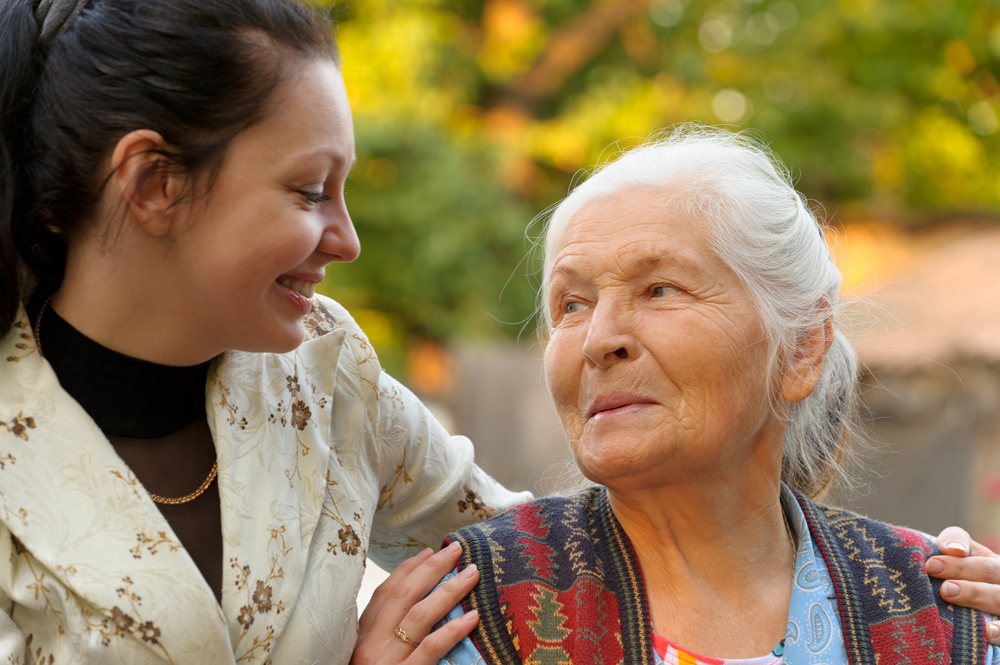Family Matters: Which Sibling Should Take Care of Parents?
Category:

Griswold has always placed family at the center of everything we do. With an aging population, it’s more common than ever for families to be confronted with a tough decision: As parents age, which sibling should step up to oversee or manage their care? It’s a sensitive conversation filled with emotions and concerns about what’s best for everyone involved. Here’s a thoughtful guide to navigating this family matter.
Which Sibling Should Take Care of Parents?
Deciding which siblings should take care of elderly parents is a complex issue and there is no one-size-fits-all answer. In most families, one sibling usually takes on the primary caregiving role. This can be influenced by a variety of factors including birth order, family traditions, or cultural beliefs. However, this can also lead to resentment from the caregiver who may become upset with siblings, or start feeling that your siblings don’t care about you. They may feel that their siblings don’t appreciate the demanding and exhausting work they are doing.
If you and your siblings are deciding who should care for your parents, consider these factors:
1. Willingness and Emotional Readiness:
Caring for aging parents is not just a responsibility; it’s an emotional journey. The most crucial factor is the willingness of the sibling to take on the role. Are they mentally prepared for the challenges? Are they emotionally connected enough to provide warmth and understanding? Sometimes, the child who feels the most emotional bond or commitment might be the best fit.
2. Proximity and Logistics: The sibling living closest to the parents may naturally find it easier to be the primary caregiver simply because they can respond quickly in emergencies and handle day-to-day tasks without the strain of long-distance travel.
3. Availability and Flexibility: The demands of caregiving can be unpredictable. The sibling with a more flexible schedule, perhaps because they work from home or have fewer personal commitments, might be best suited to the task.
4. Financial Situation: Some families choose to have a sibling take on the primary caregiving role and compensate them for their time and effort, especially if they have to cut back on work. In this scenario, financial arrangements and transparency become crucial.
5. Skill Set and Training: Does one sibling have a background in healthcare or experience in caregiving? Such expertise can be invaluable, ensuring that the parents receive not just love but also knowledgeable care.
Download Our FREE Caregiver Stress Guide
Caring for Parents is a Shared Responsibility
A shared responsibility approach to caring for elderly parents can help relieve one person of the entire burden. Making a list of everything the parent will need – transportation to events and appointments, meals, financial management, and emotional support can be divided among siblings. Siblings not local to the parents can get involved in other ways, like arranging transportation or meal delivery services. They can also visit or bring the parents to see them if possible. When siblings support each other, they can effectively navigate the challenges of caring for aging parents and maintain healthy relationships.
How to Get Siblings to Help with Elderly Parents
A caregiver receiving no help from siblings can become frustrated, overwhelmed, and even vent to the elderly parent. Being expected to become the caregiver for a parent is not an easy task for any sibling, regardless of the reason behind it. There are various factors that can make it challenging for the expected sibling to fulfill this role, including living far away from the parents, having family or work responsibilities, or dealing with health issues that may prevent them from taking on caregiving responsibilities. In some cases, the expected caregiver may also lack the necessary knowledge and skills to take on this role.
The most important thing when collaborating with siblings for elderly parent care is open, honest, and judgment-free communication. It may be difficult to hear that one sibling is unwilling to help in any way, but try to remember that everyone is doing their best based on their circumstances. Be prepared for differing opinions and disagreements. Remember, you are all working towards the same goal: a safe, healthy plan to care for your elderly parents.
Subscribe
Date: 2023-09-19
Category:


